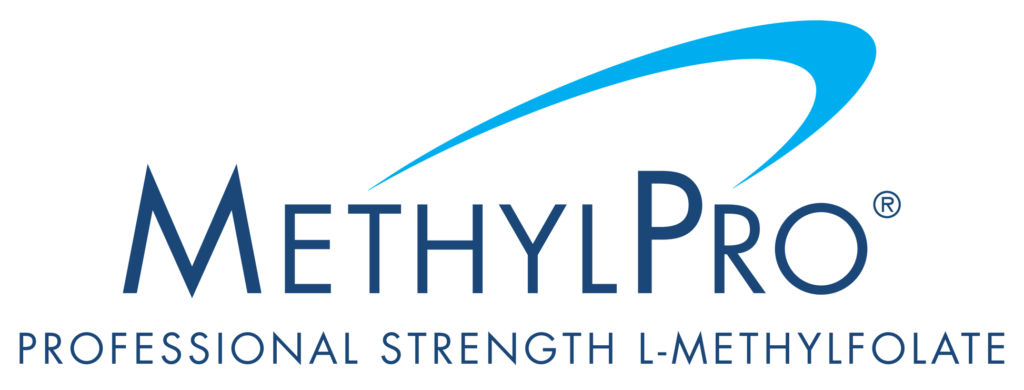How to Test for Folate Processing and Methylation Polymorphisms
Understanding your genetic makeup is quickly becoming a more accessible step towards personalized health and wellness. One area that often goes overlooked is how your body processes folate. Folate is a vital nutrient necessary for DNA synthesis, repair, and methylation. All of these are essential for neurotransmission, mood, energy, cardiometabolic health and so much more. You may be curious about genetic methylation testing to determine your ability to process dietary folic acid.
Genetic polymorphisms, especially in genes like MTHFR (which codes for the most well-known folate processing enzyme), can affect folate metabolism and subsequently your overall health. We encourage our customers to consider genetic testing if they suspect genetics could be playing a role in their need for supplementary folate. The occurrence of these polymorphisms is quite common. It will likely affect both dosing and the period of time for which supplementation is essential.
Here’s how you can get genetic testing done to uncover these polymorphisms, and what to do once you’ve received your results.
Step 1: Get Your Genetic Testing Done
The first step in this journey is to undergo genetic testing. Here’s how you can start:
- Choose a Reputable Genetic Testing Service: Many genetic testing companies work only through licensed practitioners. This means they cannot be ordered by a patient directly. If you have a specific or serious health concern, this is likely an important investment in pinpointing causation and health needs moving forward. If this is the case, or you’d just rather not work over the internet, speak directly with your healthcare provider to have them order testing.
However, a lot of genetic testing can happen at home. Companies like 23andMe, AncestryDNA, and MyHeritage offer fairly comprehensive genetic testing that includes insights into various health-related genetic markers. You may want to start here. Then, you can delve deeper with your doctor after getting a wide spread report from one of these services. Ensure that the testing company you choose provides detailed health reports. These sites also offer services that are focused on heritage over health. - Order Your Kit: Visit the website of your chosen genetic testing service and order your DNA test kit. Follow the instructions to collect your saliva sample and send it back to their lab.
- Wait for Your Results: Genetic testing typically takes a few weeks. Once your results are ready, you will receive an email notification to access your reports online.
Step 2: Decode Your Genetic Information
Once you have your genetic test results, it’s time to delve into the details of your folate metabolism and methylation pathways:
- Use a Decoding App: Platforms like Promethease, Genetic Genie, and Livewello allow you to upload your raw genetic data. They will then deliver a detailed report on various genetic polymorphisms, including those related to folate processing such as MTHFR, MTR, and MTRR.
- Analyze Your Report: Look specifically for polymorphisms in the MTHFR gene. These SNPs can significantly impact your ability to convert folic acid into its active form, L-methylfolate. Pay attention to other related genes that may affect methylation and folate metabolism.
Step 3: Understand and Act on Your Results
Understanding your genetic predispositions is empowering, but it’s only the beginning. Here’s what you can do with your newfound knowledge:
- Consult a Genetic Counselor: A genetic counselor can help interpret your results and provide personalized advice based on your genetic makeup. They can guide you on lifestyle changes and supplement choices tailored to your genetic profile.
- Optimize Your Diet and Supplements: If you have polymorphisms affecting folate metabolism, consider dietary adjustments and supplementation. You may want to avoid foods fortified with folic acid, but increase your intake of foods rich in natural folate, such as leafy greens, beans, and citrus fruits.
Additionally, supplements like MethylPro® L-Methylfolate can help ensure you’re getting the active form of folate your body needs. Appropriate dosing should be a conversation between you and your doctor, based on your genetics, health picture and goals, and diet. If you’d like to delve deeper into why L-methylfolate is a superior choice to folic acid for those with MTHFR mutations, read this article. - Monitor Your Health: Keep track of any changes in your health after making dietary and supplement adjustments. Regular check-ups with your healthcare provider can help ensure you’re on the right track.
Why L-Methylfolate Supplements?
For those with MTHFR polymorphisms, L-methylfolate supplements can be a game-changer. Unlike folic acid, L-methylfolate is already in its bioactive form, making it easier for your body to utilize. This can support various bodily functions, including neurotransmitter production, cardiovascular health, and overall cellular function. For many, this feels like a more balanced mood, more sustainable energy, and feeling better overall, both physically and mentally.
For an elaborated explanation, read this article.
Conclusion
Genetic testing can provide invaluable insights into your body’s ability to process folate and methylate DNA. By understanding your genetic polymorphisms, you can take proactive steps towards optimizing your health with the right dietary choices and supplements. Don’t wait—unlock your genetic code today and take control of your wellness journey with MethylPro®.

